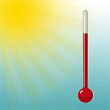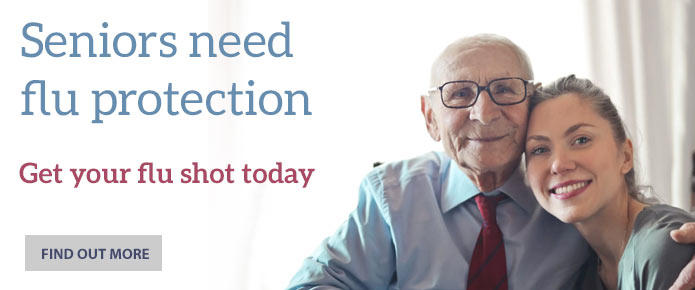
High summer temperatures bring the risk of heat exhaustion and heat stroke, especially if you are out of doors. If you are working or exercising in the heat, or if you are an older Mississippian, know the signs of heat stroke and what to do about it.
Protecting Yourself
Basic steps can keep children and adults safer in times of high heat and humidity.
- Drink plenty of fluids, especially water.
- Avoid alcohol and caffeinated drinks.
- Relax. Avoid sports and strenuous activity, especially after noon, when the heat is highest.
Heat Exhaustion
Heat exhaustion is a milder form of heat-related illness that can develop after long exposure to high temperatures and inadequate water. Those most prone to heat exhaustion are elderly people, people with high blood pressure, and people working or exercising in a hot environment.
Recognizing Heat Exhaustion
Warning signs of heat exhaustion include the following:
- Heavy sweating
- Paleness
- Muscle cramps
- Tiredness
- Weakness
- Dizziness
- Headache
- Nausea or vomiting
- Fainting
The skin may be cool and moist. The victim's pulse rate will be fast and weak, and breathing will be fast and shallow. If heat exhaustion is untreated, it may progress to heat stroke.
Seek medical attention immediately if any of the following occurs:
- Symptoms are severe
- The victim has heart problems or high blood pressure
Otherwise, help the victim to cool off, and seek medical attention if symptoms worsen or last longer than 1 hour.
If Heat Exhaustion Happens
- Drink cool water or nonalcoholic beverages
- Rest
- Take a cool shower, bath, or sponge bath
- Get into an air-conditioned room
- Change into lightweight clothing
Heat Stroke
Heat stroke occurs when the body's temperature rises rapidly, the sweating mechanism fails, and the body is unable to cool down. Body temperature may rise to 106 degrees or higher within 10 to 15 minutes. Heat stroke can cause death or permanent disability if emergency treatment is not provided.
Warning Signs of Heat Stroke
Warning signs of heat stroke vary but may include the following:
- An extremely high body temperature (above 103 degrees, orally)
- Red, hot, and dry skin (no sweating)
- Rapid, strong pulse
- Throbbing headache
- Dizziness
- Nausea
- Confusion
- Unconsciousness
If Heat Stroke Happens
- Call for immediate medical assistance.
- Get the victim out of the sun or heat.
- Cool the victim rapidly using whatever methods you can. For example, immerse the victim in a tub of cool water; place the person in a cool shower; spray the victim with cool water from a garden hose; sponge the person with cool water; or if the humidity is low, wrap the victim in a cool, wet sheet and fan him or her vigorously.
- Monitor body temperature, and continue cooling efforts until the body temperature drops to 101-102 degrees.
- If emergency medical personnel are delayed, call the hospital emergency room for further instructions.
Special Hazard: Kids in Hot Cars
A child left in a hot car can die of heat stroke in minutes. It's essential that parents and caregivers take precautions to remember children who could be left in a vehicle, and to practice them each time they travel.
- Tips to Prevent Child Deaths in Hot Cars HealthyChildren.org
Over 65?
Protection against sun and heat is even more important for older Mississippians. Drink plenty of fluids, and if your home doesn't stay cool enough, be sure to spend time in air-conditioned places in the heat of the day.

